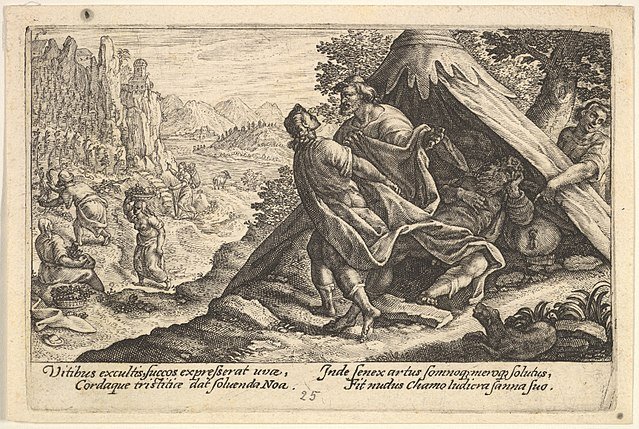God and Man
In preparation for this month’s podcast, where we will discuss Theology Proper and Anthropology utilizing Calvin’s Institutes, this brief survey of these two themes within the Pentateuch displays the biblical basis for God’s holiness and Man’s root problem: sin.
Foundations in Genesis
The theological themes of God, Man, and Salvation find their inception in Genesis and continue to develop throughout the Pentateuch. In Genesis, God is present from the onset as a powerful Creator. His desire for man’s holiness is evident in the events of the Flood when he brings a deluge upon unrighteous people. His faithfulness to his covenant promises is undeniable and is manifest through his intimate involvement in the lives of Abraham, Isaac, and Jacob. Finally, God’s sovereign plan leads his covenant people into Egypt through the life of Joseph, where Israel finds themselves in the first chapter of Exodus.
The Holiness of God in the Pentateuch
The books of Exodus, Leviticus, and Numbers continue to form our Theology Proper by displaying God’s immutability; the holy, loving, just, and faithful God in Genesis does not vary despite Israel’s passing generations and geographical changes. For example, the covenant God made with Abraham, Isaac, and Jacob appears eight times in Exodus as both an appeal to God for his help and as assurance from God that he will remain faithful to his covenant promises (Exodus 2:24; 3:6, 15, 16; 4:5; 6:3, 8; 33:1). God’s holiness and desire for his people to be holy persist from Genesis throughout the Pentateuch when God gives both the moral Law in Exodus 20 and develops the ceremonial and civil laws in Leviticus and Numbers. Like the events of the Flood, God continues to judge wickedness through the natural means of both weather and animals in the plagues of Egypt (Exodus 7:14-10:29). In the book of Numbers, God’s desire for holiness and intolerance of disobedience is seen in, “The many Israelite rebellions [that] prompted God’s judgment of death and plagues.”[1] Ultimately, Exodus, Leviticus, and Numbers extrapolate the character and works of God first seen in Genesis 1-3. Like Genesis 1-2, God desires to delight in communion with his people and his sovereignly resides over the events to fulfill this desire; however, like Genesis 3, God displays that he will not compromise his holiness or justice to obtain such communion (cf. Numbers 25:3-6). Nonetheless, God continually commands his people to be like him: holy (Leviticus 11:44-45; 19:2).
Man’s Problem
Genesis, Exodus, Leviticus, and Numbers continue to display man’s depravity despite God’s faithfulness. The sins and struggles of Noah, Abraham, Isaac, and Jacob are not unique to themselves. This fact becomes apparent early in Exodus and late in Numbers when Moses murders an Egyptian and his generation fails to enter the Promised Land because of their sinful rebellion (Exodus 2:12; Numbers 14:20-22). It is man’s sinfulness that necessitates the need for salvation to restore the communion mankind once enjoyed with God in Eden. Despite this sinfulness, God ordains salvation and provision for Israel by leading them out of Egypt (Exodus 14), granting them physical sustenance (Exodus 16:25), and communicating his requirements for their holiness (Exodus 20). The deliverance from the bondage of slavery in Egypt is typological for deliverance from the bondage of slavery to sin. Overall, Exodus, Leviticus, and Numbers further the theological themes from Genesis of God, Man, and Salvation by showing God’s love for his creation in the provision of temporal blessings and eternal life, which through the life of Christ, is the solution to man’s sin against our Holy God.
Join us during our May 2023 Podcast to further examine the biblical topics of Theology Proper and Anthropology!
[1] D.T. Colson, “Book of Numbers,” in Dictionary of the Old Testament: Pentateuch, eds. T. Desmond Alexander and David W. Baker (Downers Grove, IL: InterVaristy Press, 2003), 615.
